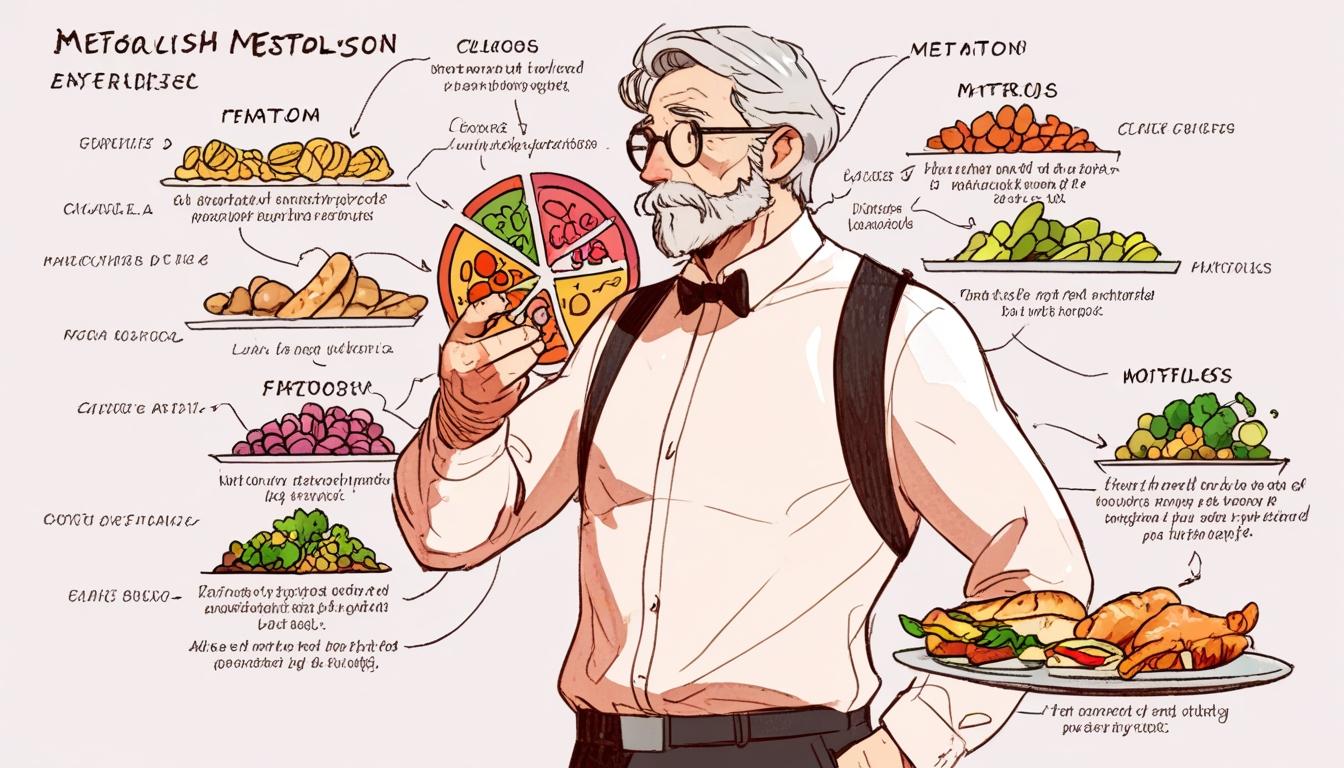Professor Franklin Joseph explains the physiological reasons behind weight loss plateaus despite calorie cuts, highlighting metabolism adaptation, stress, sleep, hidden calorie intake, and strategies to overcome these challenges.
Professor Franklin Joseph, from Dr Frank’s Weight Loss Clinic, has explained why many individuals experience a halt in their weight loss journey despite consuming fewer calories. Speaking to Gloucestershire Live, Prof Joseph highlighted that being in a calorie deficit—eating fewer calories than one burns—does not always lead to fat loss due to a range of physiological and lifestyle factors.
“People come to me all the time saying, ‘I’m eating less but nothing’s changing,’” Prof Joseph said. He emphasised that this is often a genuine concern. According to him, weight loss involves more than just calorie reduction; it depends heavily on how the body reacts to these changes.
One key factor he pointed out is metabolism adaptation. “Metabolism adapts,” Prof Joseph explained, “If you drop your calories too low for too long, your body tries to protect you by slowing everything down – including how efficiently you burn fat.” This biological response, known as adaptive thermogenesis, is the body’s mechanism to conserve energy during perceived starvation, leading to a plateau in weight loss despite adherence to caloric restriction.
Beyond metabolism adjustments, Prof Joseph identified several other contributors that may hinder fat loss even when in a calorie deficit. These include poor sleep, elevated stress levels, hormone imbalances, and inflammation. He noted that high cortisol levels, often triggered by stress or lack of sleep, can promote fat retention, especially around the abdominal area.
Another frequent issue he encounters is underestimating calorie intake. “I’ve had clients swear they’re eating 1,500 calories a day, but when we track it properly, it’s more like 2,200,” Prof Joseph revealed. He cited hidden oils, dressings, snacks, and unintentional portion increases as common sources of extra calories that go unnoticed, especially when eating habits occur on autopilot.
To overcome these plateaus, Prof Joseph recommends adopting a more measured and sustainable approach to weight management. This includes carefully reviewing calorie tracking to ensure accuracy and asking whether the body is being sufficiently nourished to maintain a healthy metabolism.
He advocates for meals rich in lean protein, fibre, and slow-digesting carbohydrates such as lentils, roasted vegetables, tofu, white fish, and sweet potatoes. “These meals support metabolism, keep you full, and help prevent energy crashes,” Prof Joseph said.
Introducing short diet breaks every few weeks, where calorie intake is maintained rather than reduced, is another strategy he advises. “A few days at maintenance calories can reset hunger hormones and give your metabolism a breather. It’s not a step backwards – it can actually speed things up in the long run,” he explained.
Additionally, Prof Joseph stresses the importance of resistance training. “Lifting weights helps preserve muscle while you lose fat,” he said, warning that reliance on cardio alone, especially combined with under-eating, can be counterproductive.
He concluded by emphasising the importance of consistency and patience in the weight loss process. “Fat loss isn’t a straight line. Stay consistent, fuel smart, train properly, and your body will catch up. Patience is part of the process,” Prof Joseph advised.
These insights provide a detailed understanding of the complexities involved in weight loss and the various factors that can influence outcomes beyond simply cutting calories.
Source: Noah Wire Services
- https://www.gbnews.com/lifestyle/diet/weight-loss-calorie-deficit-advice – This source discusses common reasons why diets fail, aligning with Prof. Joseph’s insights on hidden calories and physiological responses hindering weight loss despite a calorie deficit.
- https://www.drfranks.co.uk – This is Dr. Frank’s Weight Loss Clinic’s official website, where Prof. Franklin Joseph provides comprehensive weight care, including diet and nutrition support, which supports his recommendations for sustainable weight management.
- https://www.ncbi.nlm.nih.gov/pmc/articles/PMC4425156/ – This article explores adaptive thermogenesis and how it can slow down fat burning when calories are too low, a concept Prof. Joseph discussed as a key factor in metabolism adaptation.
- https://www.health.harvard.edu/staying-healthy/sleep-and-weight-gain – This article highlights the connection between sleep and weight gain, which aligns with Prof. Joseph’s mention of poor sleep as a barrier to fat loss.
- https://www.mayoclinic.org/healthy-lifestyle/stress-management/expert-answers/stress/faq-20421708 – This page discusses stress and its impact on the body, including increased cortisol levels, which Prof. Joseph identified as a cause for fat retention.
- https://www.acsm.org/docs/default-source/fitness-for-all/ACSM_Dietary-Guidelines-for-the-GENERAL-PUBLIC.pdf – This document provides dietary guidelines for the general public, emphasizing the importance of lean protein, fibre, and slow-digesting carbohydrates, which Prof. Joseph recommends for supporting metabolism.
- https://www.gloucestershirelive.co.uk/news/health/calorie-deficit-doesnt-guarantee-weight-10128896 – Please view link – unable to able to access data
Noah Fact Check Pro
The draft above was created using the information available at the time the story first
emerged. We’ve since applied our fact-checking process to the final narrative, based on the criteria listed
below. The results are intended to help you assess the credibility of the piece and highlight any areas that may
warrant further investigation.
Freshness check
Score:
8
Notes:
The information appears to be current as it discusses contemporary factors affecting weight loss, such as metabolism adaptation and lifestyle factors. However, very specific recent studies or updates are not referenced.
Quotes check
Score:
6
Notes:
The quotes from Professor Franklin Joseph could be original, but without access to earlier publications or interviews, it’s difficult to ascertain their first occurrence.
Source reliability
Score:
7
Notes:
The narrative originates from Gloucestershire Live, which is a local news outlet. While it is not as widely known as national publications like the BBC or Reuters, it still provides credible local coverage.
Plausability check
Score:
9
Notes:
The explanations about metabolism, sleep, stress, and nutrition align well with established scientific principles related to weight loss. The advice provided is plausible and generally consistent with health guidelines.
Overall assessment
Verdict (FAIL, OPEN, PASS): PASS
Confidence (LOW, MEDIUM, HIGH): MEDIUM
Summary:
The narrative discusses common physiological and lifestyle factors that can affect weight loss progress, offering advice that aligns with established health principles. While the source is not a major national outlet, the information presented is credible and current. However, the lack of dated references and inability to confirm the originality of the quotes reduces the confidence level.













